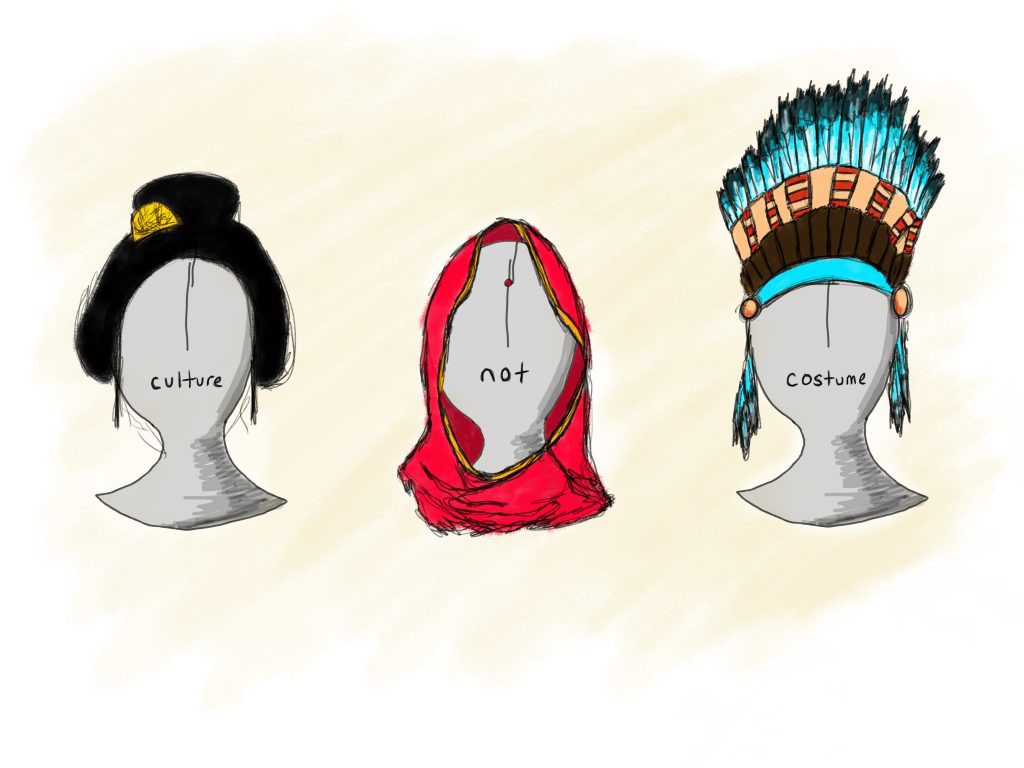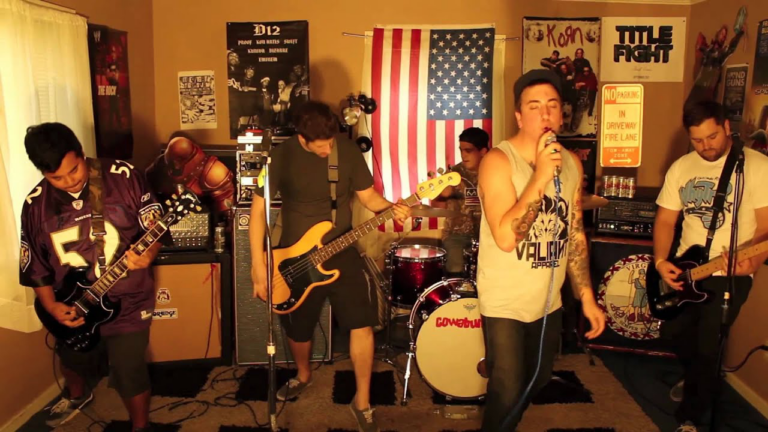Theatre UNB is staging a production of Brecht’s The Good Woman of Szechuan at the end of March. With the play taking place in a slightly fictionalized version of China, and the cast being predominantly white, and not even mildly Chinese, the question must be asked—is this cultural appropriation?
Brecht, a white German man, wrote the play in the 1930’s having never been to China, or the province of Szechuan. The play is being performed predominantly by one of the UNB drama classes, along with a couple community members. None of them are from China. The play is set in the “province of Szechuan” and all of the characters have Chinese names. The play has also been known to have harmful stereotyping and even racist undertones, but newer translations of the German original have aimed to correct this. However, the production’s director, Dr. John Ball, decided to use one of the older translations.
“We looked at both. I chose it mainly because the language I find is clearer and more economical. It’s a shorter script than the other one.” The show’s assistant director, Devin Rockwell agreed.
“I think that the newer version… actually ends up correcting quote unquote a lot of the mistakes that Brecht made originally. Like it changes the ‘city of Szechuan,’ which is fictional, that he made for this, to ‘province,’ which then I thought was a very strange decision—because then it sets it in this real Chinese place, which I thought it was specifically not the intention of Brecht in the first place.”
It seemed that the directors were dedicated to the idea of divorcing the play from its Chinese context. However, trying to bring something out of the cultural context in which it was set, even if it was done in a misguided way by someone like Brecht, who had never been there, is still problematic. Leslie James,* one of the students involved in the production, noted that once the class had taken the play home, “everyone read it and was like, ‘I’m really uncomfortable with this. That’s not something we want to do.’ Because I feel like it’s unauthentic. If you’re starting to find these authentic pieces and you have an unauthentic performance, it doesn’t really match up. And then on top of that, as a performer, I think we’d all feel really uncomfortable.”
A group of students from the class expressed concerns at the beginning of the term about cultural appropriation and the issues of putting on a play that seems to have been written for a Chinese cast.
“I think there could be dangers with the script, of cultural appropriation,” said Ball. “And the students were right to flag those. And some productions have run into problems with that… I didn’t want to do a play that students would be uncomfortable doing or do it in a way that they would feel they couldn’t embrace and get on side with.”
Both James and the directors interviewed discussed trying to remove the play from China, and how they were working towards trying to have the play set “everywhere and nowhere” as Rockwell put it. However, James said that Ball had wanted to put the cast in traditional Chinese dress.
“He was thinking, we’ll have traditional Chinese dress, and people will do ‘Chinese gestures.’ So instead of hand shaking, you do a bow or something.” This is problematic. James admitted that after discussions, the director was dissuaded from some of these ideas, however, several costumes and props were borrowed from the Chinese Cultural Association of New Brunswick.
Culture is not a costume. Even incorporating only elements or only some costumes that are taken from a culture to which you do not belong can be a morally complicated issue. It’s even more morally complicated when no one involved is actually Chinese, and the play itself has issues with underlying stereotyping. The characters live in a slum, on “Yellow Street.”
“This could be as much set in a Chinatown or simply in, you know, in a Western inner city, and it’s supposedly set in a slum—in a slum that could be in any number of big cities, you know, anywhere in the world,” said Ball. James, did not agree.
“I don’t think that’s going to convey to an audience. If somebody was like, okay, we’re doing a play. It’s not second Canada. Now zoom in. It takes place in the city of New Brunswick. I’d be like, Okay, well, they just lied to me. It does take place in Canada, because New Brunswick’s a Canadian province.”
Cultural appropriation is a very touchy subject in general, and has become a pressing issue in the performing arts. In 2019, the Canadian Opera Company in Toronto performed Puccini’s opera Turandot. It takes place in Peking just like Good Woman, and also struggles with profound racial stereotyping. The Toronto production was slammed because of their botched attempts at salvaging the opera from its racist wreckage. It will be interesting to see if UNB’s production of Good Woman will face similar issues.
“No one wants to make someone feel like they weren’t welcomed,” explained James. “For a lot of people theater is like this escape. It’s a really open place. It’s very accepting… And so the idea of someone coming to a show and feeling hurt and like they aren’t supposed to be here and they don’t fit in or were targeted in some way or misrepresented—would be really shitty.”
It feels almost as if they’re damned if they do and damned if they don’t. Putting a bunch of white actors into traditional Chinese clothing is wrong. Trying to divorce the play from its context, whatever the directors might say about it just being a “brechtian moral parable” that’s not set in any one place, is also problematic. The seeming mishmash that the production has created? Maybe they’ll find some sort of… balance?
When asked, James said they wished that they could have done a different play. “It would have been so much easier,” they said. Either way, the production is on.
The Good Woman of Szechuan is currently scheduled to run April 1-4 with performances at 7:30. Ticket prices are $8 for students, $10 for seniors, and $14 for adults.
Despite everything, James, “hopes people will still go.”
*Names in this article have been changed to respect and protect the privacy of our sources.




